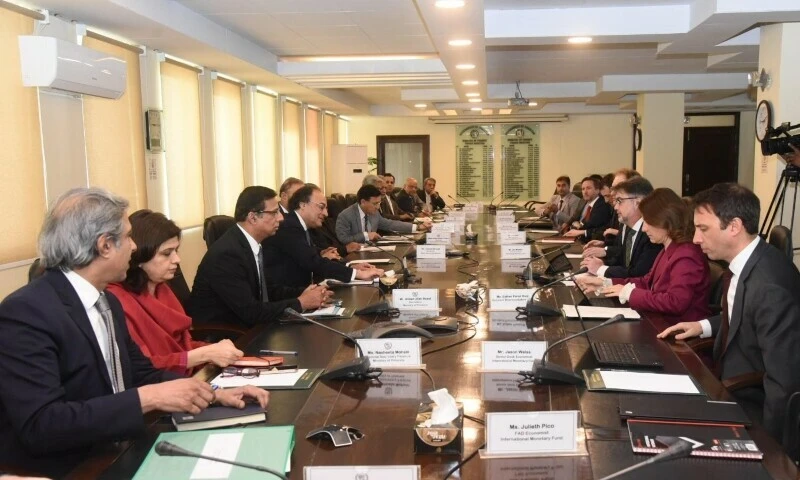Islamabad, March 27: An International Monetary Fund (IMF) delegation is scheduled to visit Pakistan on April 4 to finalize the country’s budget for fiscal year 2025-26, including key decisions on revenue measures and expenditure controls, sources informed Bloom Pakistan.
This visit comes as Pakistan prepares to present its annual budget in the first week of June.
This outcome is just before the approval of the IMF Board review, which if done by late April, then tranche approval could be quick.
Because, in April, IMF Spring Meetings are due and then it could go for May or June. April is a busy month for IMF staff, which can not conduct a review easily.
For the talks, the government had proposed tax cuts in key sectors such as construction, tobacco, and beverages, but the IMF rejected most of these proposals, particularly those related to tobacco, citing concerns over public health.
The IMF argued that reducing taxes on tobacco would likely increase healthcare costs and dismissed the industry’s argument that high taxation drives illicit trade.
Pakistan’s Health Ministry has also supported higher tobacco taxes, opposing the tobacco industry’s calls for tax reductions.
Read More: Pak-IMF Staff Level Agreement Announced, Approval Due
Tobacco companies in Pakistan argue that high taxes are shrinking legitimate sales and fueling the black market.
Revenue Targets Adjusted Downward
The IMF has agreed to revise Pakistan’s revenue collection target for the current fiscal year downward, reducing it from PKR 12.97 trillion to PKR 12.33 trillion due to shortfalls in tax collection.
The Federal Board of Revenue (FBR) has been struggling to meet its monthly targets, and it is expected to fall more than PKR 100 billion short of its PKR 1.22 trillion target for March.
Tax revenue continues to be a crucial issue for Pakistan as it seeks continued IMF support for its fiscal policies.
The government’s failure to meet collection goals has intensified pressure on the FBR to enforce stricter tax compliance measures while limiting exemptions.
New Levy on Captive Power Plants
To alleviate electricity costs, Pakistan and the IMF have agreed to impose a new levy on captive power plants that use gas.
Also Read: IMF Team to Arrive in Pakistan Next Week to Review Ongoing Program Before 2025 Evaluation
The revenue generated from this tax will be allocated to provide relief to electricity consumers. The levy is expected to lower the electricity tariff by PKR 1 per unit.
In addition, Pakistan is working on a broader relief package for electricity consumers, which is expected to be unveiled with IMF approval.
The government is under significant pressure to address the rising energy costs, which have contributed to inflation and growing public discontent.
The IMF’s visit in April will be crucial for Pakistan as it finalizes its budgetary measures ahead of the new fiscal year.
With limited fiscal space, the government faces challenging negotiations regarding tax policies, spending priorities, and the economic reforms required under the IMF program.
